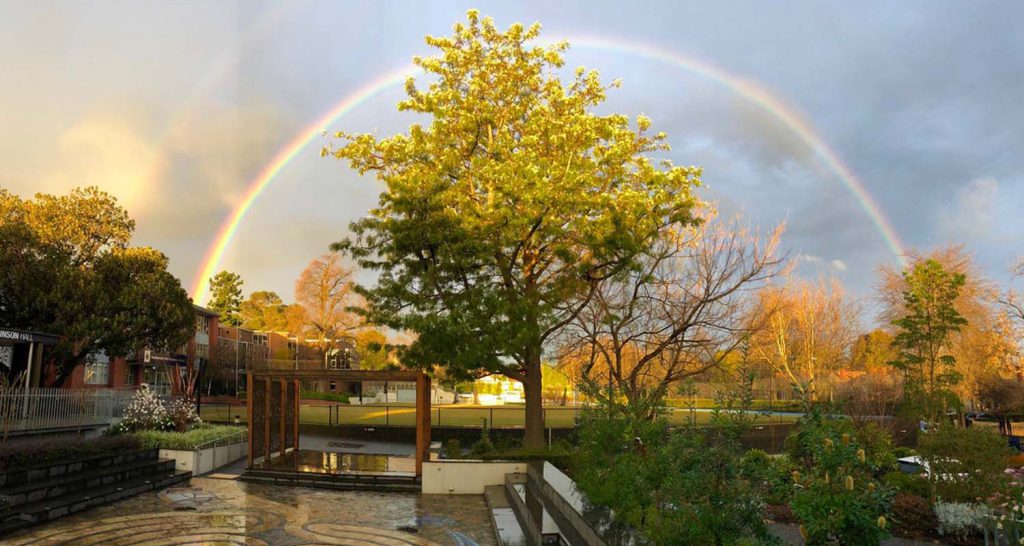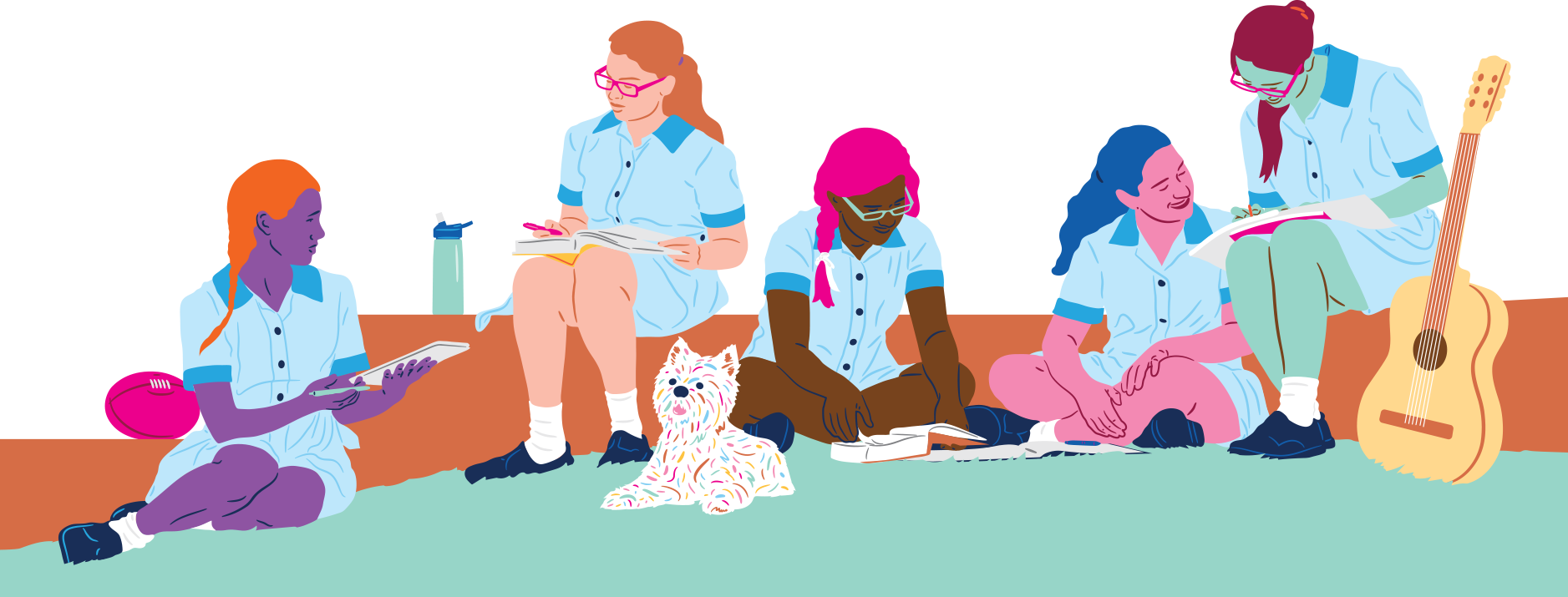
Our School Counsellors, Beth Sarlos and Paula Kolivas, work with students and families across all year levels at Camberwell Girls Grammar School. In her article below, Beth talks about some of the challenges of adolescence with a particular focus on connecting with your adolescent. She also provides some helpful tips.
With best wishes,
Debbie Dunwoody
Recently, a post came across came my social media feed, which asked, “What is it the most challenging part of parenting adolescents?
I usually love the commentary and feedback that parents make in the comment section, and I tend to always read them. They are often very validating of what parents go through, witty and humorous. In this particular post, perhaps not surprisingly, there were many comments from parents, including:
“The eye rolls, the sarcasm, the disrespect, the ignoring of advice, the condescending remarks, the defensive reactions, the not doing what they are asked, the sense of entitlement”, and many parents simply said, ‘all of the above’!.
Regardless of the temperament or behaviour of your children, most parents can identify with some, if not all of the comments – I know I do. The overriding comment made by parents in response to the question posed was that at times parents, felt shut out of their children’s lives and a sense of rejection prevailed as their children strive for independence and navigate their way through adolescence.
I read somewhere, that “the only thing that is harder than being the parent of a teenager/young adult is actually being a teenager/young adult in today’s world”. This is a good reminder for us as parents.
Adolescence is indeed a difficult time for both adolescents and parents. As we are all aware, a young person’s pre-frontal cortex, which is responsible for decision making, is not fully developed until 25 years of age and beyond. This means that the teen/early adult years are likely to be fraught with challenges, including academic stress, peer pressure, fluctuations in mental health, trust and self esteem issues, and the challenges of identity formation.
Adding to this is that, adolescents and young adults, live in a world where social media not only gives them messages that they are not good enough but also, in the process of connecting them with others, social media paradoxically, actively results in their social disconnection as well. Social media and adolescent time online often means less quality face to face time with family and makes family engagement and connection harder and harder.
This is all happening, at the same time that adolescents are navigating the process of moving away and trying to assert their independence from the family. Family connections are often replaced by connections with peers and less time is spent with the family. It is normal for them to listen and interact more with their peers than with their families and while this can be difficult for parents, it is a very typical stage of adolescence.
The goal of this moving away from family for adolescents, is the need to separate and individuate, to become their own person and go out into the big world. The goal for parents is to let go, to allow them to be in control of their own lives and choices, and in the process make them independent, self-aware and self-reliant adults.
In the process of individuating, striving for autonomy and self-reliance, and ultimately becoming their own selves, adolescents are ‘disconnecting’ from us or at least that is how it seems to many parents I have spoken to.
From conversations with friends and parents that I see in my day-to-day work, many parents struggle with their children separating from them and often grieve the loss of what once was. They find it hard to balance the need for the adolescent to separate, with the need to sustain some type of communication with them. And yet, there is no time that is so important for connectedness than the time when your young person is beginning to separate from you. They may not need you to be in control of their lives, but they still need guidance and connection, it is just that this connection may look different to what it has in the past.
Research has demonstrated the connection with family (and school and community for that matter) has a huge impact to physical and mental health. Adolescents who feel connected to others have a lower incidence of anxiety and depression and empirical evidence suggest the protective role of parent-child connectedness.
So how can we maintain the connections but at the same time allow our young people and fledgling adults transition into adulthood? I have scanned many parenting blogs and posts and have compiled some helpful tips for parents to help navigate the turbulent waters of adolescence, whilst focusing on a ‘new’ way of connecting with your young person.
The connection with teens/younger adults becomes increasingly important as a change in connection from family becomes normal. Remember, the process of separation is normal but what adolescents need from us most is to hang in there and to stay connected but in different and new ways. You may feel you are doing all the work, but it will be worth it in the end.
Beth Sarlos
CGGS School Counsellor
sarlosb@cggs.vic.edu.au
Useful parenting websites to browse :
https://parentingteensandtweens.com
https://raisingchildren.net.au/
“We acknowledge and pay respect to the Wurundjeri people as the traditional custodians of the land on which the school is situated.”
Secondary School / Administration
2 Torrington Street, Canterbury
Victoria 3126 Australia
T +61 3 9813 1166
F +61 3 9882 9248
camgram@cggs.vic.edu.au
Junior School / Ormiston

